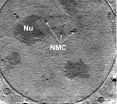(Press-News.org) African Americans—along with some groups of Hispanics—have faster rates of decline in kidney function compared to white Americans, according to a study presented at the American Society of Nephrology's 43rd Annual Meeting and Scientific Exposition.
"Racial/ethnic differences are present early, before chronic kidney disease (CKD) has been established," comments Carmen A. Peralta, MD (University of California, San Francisco).
Based on a large nationwide study of heart disease risk factors (the Multi-Ethnic Study of Atherosclerosis), the researchers analyzed data on nearly 5,200 U.S. adults, all with initially normal kidney function. Two different "generalized estimating equations" were used to assess changes in kidney function, based on five-year follow-up data. The study compared white, black, Hispanic, and Chinese Americans to look for possible racial/ethnic differences in the aging-related rate of kidney function decline.
African Americans demonstrated a faster annual rate of decline. By one equation, decline was about 60 percent faster for African American versus white participants. Peralta adds, "The observed differences were not fully explained by traditional risk factors," such as cholesterol levels, body weight, smoking, diabetes, or high blood pressure.
Kidney function also declined faster in Hispanic participants, but the effect varied by country of origin. Dominicans had the fastest rate of decline, followed by Puerto Ricans. All other Hispanic subgroups, as well as Chinese Americans, demonstrated a rate of decline in kidney function similar to that of whites.
End-stage renal disease (ESRD) disproportionately affects African-Americans and Hispanics. "Studies have suggested that this is more likely due to faster rates of progression from established CKD," Peralta explains. "Whether or not these differences in kidney function decline are present at earlier stages of kidney dysfunction is not well known."
The new results suggest that people of certain racial and ethnic groups may be at risk for faster declines in kidney function, even if they are free from CKD. "This reflects a new opportunity to study how to best identify persons at high risk and to investigate prevention strategies for CKD," Peralta concludes.
The study had some important limitations, especially the fact that kidney function was assessed using estimating equations, rather than measured directly.
INFORMATION:
Study co-authors are Ronit Katz, PhD, Bryan Kestenbaum, MD, Ian de Boer, MD, David Siscovick (University of Washington, Seattle), Holly Kramer, MD (Loyola Medical Center, Maywood, IL), Mark Sarnak (Tufts Medical Center, Boston), Joachim Ix, MD (University of California, San Diego), Moyses Szklo (Johns Hopkins University, Baltimore), Steven Shea (Columbia University, New York), Michael G. Shlipak, MD (University of California, San Francisco).
Disclosures: Dr. de Boer has received grants/research report from Abbott Laboratories. Dr. Kestenbaum has received grants/research report from Amgen, Inc. The remaining authors reported no financial disclosures.
The article, entitled "Racial Differences in Kidney Function Decline among Persons without Chronic Kidney Disease: The Multi-Ethnic Study of Atherosclerosis," [TH-FC090] will be presented as part of an oral presentation on Thursday, November 18 at 6:18 PM MT Time in Room 405 of the Colorado Convention Center in Denver, CO.
ASN Renal Week 2010, the largest nephrology meeting of its kind, will provide a forum for 13,000 professionals to discuss the latest findings in renal research and engage in educational sessions related to advances in the care of patients with kidney and related disorders. Renal Week 2010 will take place November 16 – November 21 at the Colorado Convention Center in Denver, CO.
The content of this article does not reflect the views or opinions of The American Society of Nephrology (ASN). Responsibility for the information and views expressed therein lies entirely with the author(s). ASN does not offer medical advice. All content in ASN publications is for informational purposes only, and is not intended to cover all possible uses, directions, precautions, drug interactions, or adverse effects. This content should not be used during a medical emergency or for the diagnosis or treatment of any medical condition. Please consult your doctor or other qualified health care provider if you have any questions about a medical condition, or before taking any drug, changing your diet or commencing or discontinuing any course of treatment. Do not ignore or delay obtaining professional medical advice because of information accessed through ASN. Call 911 or your doctor for all medical emergencies.
Founded in 1966, the American Society of Nephrology (ASN) is the world's largest professional society devoted to the study of kidney disease. Comprised of 11,000 physicians and scientists, ASN continues to promote expert patient care, to advance medical research, and to educate the renal community. ASN also informs policymakers about issues of importance to kidney doctors and their patients. ASN funds research, and through its world-renowned meetings and first-class publications, disseminates information and educational tools that empower physicians.
Race impacts declining kidney function
Study may point to new opportunities for kidney disease prevention
2010-11-20
ELSE PRESS RELEASES FROM THIS DATE:
Earlier specialist care associated with lower incidence of ESRD and better patient outcomes
2010-11-20
Among kidney disease patients, earlier care from a nephrologist is associated with a decreased likelihood of developing end-stage renal disease and a lower risk of death during the first year of dialysis, according to a study presented at the American Society of Nephrology's 43rd Annual Meeting and Scientific Exposition.
Although confirmatory studies are needed, increasing the number of patients who receive nephrologist treatment for advanced chronic kidney disease (CKD) could have a substantial impact on the currently high U.S. ESRD rates as well as improve outcomes ...
Elderly can blame fractures and falls on low sodium
2010-11-20
Older adults with even mildly decreased levels of sodium in the blood (hyponatremia) experience increased rates of fractures and falls, according to a study presented at the American Society of Nephrology's 43rd Annual Meeting and Scientific Exposition. Falls are a serious health problem for the elderly and account for about 50 percent of deaths due to injury in the elderly.
"Screening for a low sodium concentration in the blood, and treating it when present, may be a new strategy to prevent fractures," comments Ewout J. Hoorn, MD, PhD (Erasmus Medical Center, Rotterdam, ...
New tests and interventions may help prevent future health problems
2010-11-20
1. Potassium Citrate May Help Prevent and Treat Osteoporosis
Supplement Neutralizes Bone Damage Inflicted by the Western Diet
The Western diet creates an acidic environment in the body that removes calcium from bones and may contribute to the development of osteoporosis. Healthy adults who consume the standard US diet sustain a chronic, low-grade state of acidosis that worsens with age as kidney function declines, limiting urinary acid excretion. Reto Krapf, MD (University of Basel, in Bruderholz/Basel, Switzerland) and colleagues designed a study to see if daily alkali ...
LA BioMed research finds kids with larger waist sizes are more likely to have cardiac risk factors
2010-11-20
LOS ANGELES (Nov. 19, 2010) – In a study of more than 4,500 children, researchers found those with higher waist circumferences had significantly higher pulse pressures, which is known to increase the risk of heart-related disorders, according to an abstract presented today at the American Society of Nephrology's Renal Week conference in Denver.
Gangadarshni Chandramohan, MD, a researcher at Los Angeles Biomedical Research Institute at Harbor-UCLA Medical Center (LA BioMed) and the lead author of the abstract, said the research team studied data from 4,667 children aged ...
COPD could be a problem with autoimmunity
2010-11-20
Moderate to severe chronic obstructive pulmonary disease (COPD) may be an auto-immunity problem, according to researchers in Spain, who studied the presence of auto-antibodies in patients with COPD and compared them to levels of control subjects. They found that a significant number of patients with COPD had significant levels of auto-antibodies circulating in their blood, about 5 to 10 times the level in controls.
The findings were published online ahead of the print edition of the American Thoracic Society's American Journal of Respiratory and Critical Care Medicine.
"We ...
Report: For every 1 homeless person in Canada, another 23 live in inadequate housing
2010-11-20
TORONTO, Nov. 19, 2010--For every one person in Canada who is homeless, another 23 live in unsafe, crowded or unaffordable housing, meaning the country's housing crisis is even worse than previously thought, according to Dr. Stephen Hwang of St. Michael's Hospital in Toronto.
Those "vulnerably housed" people have the same severe health problems and dangers of assault as homeless people, said Hwang, principal investigator of a new report on housing and health issues in Vancouver, Toronto and Ottawa.
"The key point is that Canada needs a national housing strategy," ...
Eating a variety of fruit cuts lung cancer risk
2010-11-20
Eating five portions of fruit and vegetables per day is one of the means that experts most frequently recommend for preventing cancer. Now, the European EPIC study carried out by researchers from 10 countries has shown that, in the case of lung cancer, the important thing is not just the quantity but also the variety of fruit consumed, which can reduce the risk by up to 23%.
"This research looks more deeply into the relationship between diet and lung cancer", María José Sánchez Pérez, co-author of the study and director of the Granada Cancer Registry at the Andalusian ...
Special section on ecological distribution conflicts in the journal Ecological Economics
2010-11-20
Researchers from Institute of Environmental Science and Technology (ICTA), at Universitat Autònoma de Barcelona (UAB), and other universities have published a special section in the journal Ecological Economics that analyzes the link between ecological economics and political ecology. This issue stems from the institute's research on impacts and resistance at the "commodity frontiers", where the extraction of natural resources and the disposal of toxic wastes produce a range of economic, environmental, cultural and social conflicts.
The special issue, titled Social Metabolism, ...
Online map of maternal health to inform world leaders
2010-11-20
Researchers from the University of Southampton have helped construct an online interactive world map which gives stark facts and figures about the health of women during pregnancy, childbirth and following the birth of their child.
Social scientists Professor Zoë Matthews and Dr Sarah Neal are working in collaboration with the White Ribbon Alliance for Safe Motherhood and the University of Aberdeen on a joint project worth in excess of £160,000 called 'The Atlas of Birth', which also includes a book, short film and flyers.
"We are using data from the United Nations ...
New microscope reveals ultrastructure of cells
2010-11-20
For the first time, there is no need to chemically fix, stain or cut cells in order to study them. Instead, whole living cells are fast-frozen and studied in their natural environment. The new method delivers an immediate 3-D image, thereby closing a gap between conventional microscopic techniques.
The new microscope delivers a high-resolution 3-D image of the entire cell in one step. This is an advantage over electron microscopy, in which a 3-D image is assembled out of many thin sections. This can take up to weeks for just one cell. Also, the cell need not be labelled ...
LAST 30 PRESS RELEASES:
Billion-DKK grant for research in green transformation of the built environment
For solar power to truly provide affordable energy access, we need to deploy it better
Middle-aged men are most vulnerable to faster aging due to ‘forever chemicals’
Starving cancer: Nutrient deprivation effects on synovial sarcoma
Speaking from the heart: Study identifies key concerns of parenting with an early-onset cardiovascular condition
From the Late Bronze Age to today - Old Irish Goat carries 3,000 years of Irish history
Emerging class of antibiotics to tackle global tuberculosis crisis
Researchers create distortion-resistant energy materials to improve lithium-ion batteries
Scientists create the most detailed molecular map to date of the developing Down syndrome brain
Nutrient uptake gets to the root of roots
Aspirin not a quick fix for preventing bowel cancer
HPV vaccination provides “sustained protection” against cervical cancer
Many post-authorization studies fail to comply with public disclosure rules
GLP-1 drugs combined with healthy lifestyle habits linked with reduced cardiovascular risk among diabetes patients
Solved: New analysis of Apollo Moon samples finally settles debate about lunar magnetic field
University of Birmingham to host national computing center
Play nicely: Children who are not friends connect better through play when given a goal
Surviving the extreme temperatures of the climate crisis calls for a revolution in home and building design
The wild can be ‘death trap’ for rescued animals
New research: Nighttime road traffic noise stresses the heart and blood vessels
Meningococcal B vaccination does not reduce gonorrhoea, trial results show
AAO-HNSF awarded grant to advance age-friendly care in otolaryngology through national initiative
Eight years running: Newsweek names Mayo Clinic ‘World’s Best Hospital’
Coffee waste turned into clean air solution: researchers develop sustainable catalyst to remove toxic hydrogen sulfide
Scientists uncover how engineered biochar and microbes work together to boost plant-based cleanup of cadmium-polluted soils
Engineered biochar could unlock more effective and scalable solutions for soil and water pollution
Differing immune responses in infants may explain increased severity of RSV over SARS-CoV-2
The invisible hand of climate change: How extreme heat dictates who is born
Surprising culprit leads to chronic rejection of transplanted lungs, hearts
Study explains how ketogenic diets prevent seizures
[Press-News.org] Race impacts declining kidney functionStudy may point to new opportunities for kidney disease prevention


